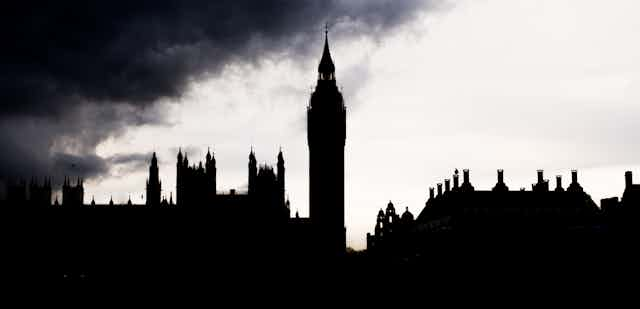The extraordinary scenes at Westminster on June 13, as parliament decided on the European Union Withdrawal Bill, did not portray the “Mother of All parliaments” in the best light. The government’s decision to cram this significant constitutional debate on amendments made by the House of Lords into just a few hours created mayhem.
For Scotland, the 15 minutes allocated to the devolution question reached farcical proportions, resulting in a walkout by the SNP group during the parliamentary centrepiece, Prime Minister’s Questions (PMQs). Worse, despite the Scottish parliament withholding its consent to the bill as it stood, the relevant section – Clause 11, concerning powers currently held in Brussels and where they would go when the UK leaves the EU in 2019 – was voted through unaltered.
At one point the Welsh Assembly also felt that Westminster was looking to “grab” as many as 111 different powers from Europe which should be administered by the devolved bodies. But through negotiations this was reduced to around 20 areas of dispute, the main ones being related to farming and environmental regulations concerning food, such as packaging.
In April Wales agreed to UK frameworks having oversight of these remaining areas so there could be a common approach for the UK economy, but this was a compromise too far for the Scottish government. The argument is that agreeing to the sharing of any powers from Brussels with the UK goes against the principles of the devolution settlement.
The Scotland Act 1998 which created devolution adopted a “reserved powers” model. This meant that all powers listed as such in the legislation would be things that Scotland could not make laws on. Correspondingly, the logic went, if an issue was not covered by a reserved power, the Scottish parliament had the right to legislate on it. The default position then, is for all powers currently in Brussels to go to Holyrood – as they are not identified as reserved matters. For Westminster to assume them is being regarded as a “power grab” by many in Scotland.

Unusually in these polarised times, this position is shared across all the parties in the Scottish parliament – SNP, Labour, Lib Dems and Greens – with the exception of the Conservatives. When Holyrood voted to withhold its consent to the Withdrawal Bill by 93:30, it was dismissed by Conservative spokesperson Adam Tomkins as the “dullest constitutional crisis in history” by focusing on fairly obscure policy areas of dispute.
But concerns over food packaging aside, the longer-term constitutional significance revolves around the Westminster parliament ignoring Holyrood’s lack of consent.
No consent
Legislative Consent Motions (also known as Sewel Motions) have been part of devolution since 1999. Whenever Westminster wants to pass laws that indirectly touch on matters that are largely devolved, it formally seeks consent from the Scottish parliament. This has happened 173 times –- and it has been granted almost every time.
The one other occasion where Holyrood refused to pass a consent motion was over the controversial austerity-led Welfare Reform Bill 2011 which introduced the bedroom tax and the benefit cap among other things. Labour and SNP MSPs were united in this. But, like the current Brexit Bill, the law was passed in London regardless.
Though welfare was largely a matter reserved to Westminster, in this case there are powers that could be regarded as matters for the devolved parliament. The combination of Westminster ignoring Holyrood’s decision to withhold consent and the principles underpinning the devolved settlement could have long-term implications. This could potentially affect how the Scottish government deals with Westminster on a day to day basis.
It may also see the balance of forces in Scotland swing back in favour of another independence referendum. This demand has stalled somewhat following Theresa May’s refusal to grant a section 30 order which would allow a “legal” referendum to take place in 2017. But these events could revive the call to separate from the rest of the UK.
Supreme Court challenge
The constitutional disputes and legal arguments don’t end there. In March, as it refused consent to the Westminster Brexit bill, the Scottish parliament passed its own Brexit law – the Continuity Bill – using emergency procedures. Essentially, this law would allow all EU law regarding Scotland to transfer to the Scottish parliament after Brexit. The support for this bill also crossed party boundaries in Scotland – once again with the exception of the Conservatives.

But this bill is not yet law because of another constitutional problem. The presiding officer – the chair who oversees the running of Holyrood and its debates – ruled that the proposed law was outside the powers of the Scottish parliament. It breached the Scotland Act as it proposed to change European Union Law, which it is explicitly prevented in the 1998 law.
However the lord advocate – Scotland’s chief legal officer – disagreed, arguing that the law was preemptive and seeking to deal with the situation after the UK (including Scotland) had left the European Union.
So now there is a stalemate between the legal advisors of the Scottish Parliament and those of the Scottish government. This has allowed the UK government to refer the matter to the Supreme Court to issue final judgment on whether Holyrood has the power to pass the bill before Royal Assent is given – normally a formality.
This power of referral has always existed in the devolved settlement with Scotland, but has never been used until now – the hearings are scheduled for July 24. In the current atmosphere this could be explosive, as the Supreme Court has the power to block this bill completely –- something that is not possible with Westminster laws.
With the Scottish parliament ignored by Westminster and the Supreme Court potentially striking down its Brexit bill, this conflict could emerge from the constitutional morass into a summer of rallying cries for more powers for Scotland.

